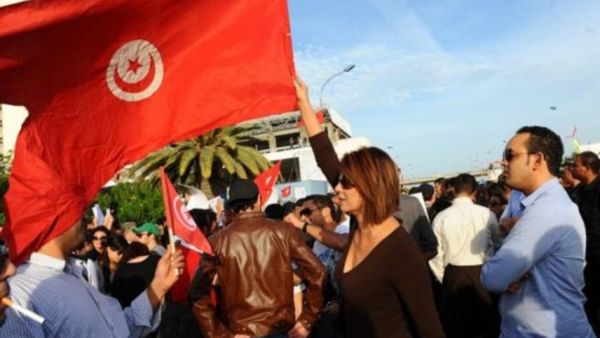The economic impact of the Arab Spring revolutions is a natural part of region’s course to democracy but urgent action is needed to curb unemployment and fiscal deficits, experts and officials said at an economic forum Friday.
“Democratization, by nature, is a difficult process that requires demolition as much as construction,” U.N. Economic and Social Commission for Western Asia head Rima Khalaf said in the opening remarks at the first ESCWA Economics Forum.
The forum, taking place in Beirut, ended yesterday.
Khalaf added that European countries who experienced a similar wave of uprisings in the late ’80s took over six years before returning to growth.
“Our region is no exception. In the CEE [Central and Eastern European] countries, income fell by over 28 percent before resuming growth in the mid-’90s,” she said.
Tunisian Economy Minister Reda Saidi discussed the economic difficulties facing Tunisia, noting that soaring unemployment remains a major challenge for his country.
The Tunisian economy has begun to stabilize after the revolution that toppled the regime of Zine al-Abidine Ben Ali in 2011, Saidi said.
He said progress has been made in the new government’s fight against corruption and realizing reforms.
Angelina Eichhorst, head of the EU delegation in Lebanon, reiterated Europe’s commitment to supporting the transition processes in the region.
She said that the EU remains committed to boosting long-term economic partnerships with its southern-Mediterranean neighbors.
Short-term measures to curb unemployment and stabilize fiscal conditions amid an escalating socio-economic crisis were highlighted in policy papers discussed in two panels following the opening.
“The Arab Spring was mainly underpinned by the economic failure of the region in reducing unemployment particularly for youth,” a policy paper on unemployment argued.
“To spur job creation in the region in the short-term, governments in the region should focus on improving the impact of their macroeconomic policies,” the paper read.
“In the absence of progressive and comprehensive tax scales [non oil-producing MENA countries] rely on revenue-generation through value-added taxes ... that do not distribute the tax burden relative to the size of personal income or corporate profit,” the document read, recommending that these countries move toward fairer taxing systems.
It added that Arab countries should also cut military expenditures and channel resources into education and public health, which in turn would immediately improve employment conditions and help create desperately needed job opportunities.
Reducing labor market rigidity, while maintaining social security mechanisms, is also one of the main policy recommendations highlighted by the policy paper.
It suggested that Arab countries should cut the cost of layoffs for companies to encourage them to hire more individuals. This, however, should be coupled with the creation of a mandatory unemployment insurance system, the document read.
The policy paper also urges governments to adopt “social VATs.”
“The principle of social VATs is to reduce the social contributions paid by employers and offset by an increase in the VAT rate to continue to finance the social protection of employees,” the document read.
The mechanism would have an immediate effect in lowering labor costs and boosting employment, the paper added, citing examples from countries that successfully implemented the policy, including Germany and Denmark, to cut the cost of hiring for companies.
According to the ESCWA paper, Arab economies could grow by an additional 3.5 percent annually if they adopt a customs union, reduce transportation costs by 50 percent, and substitute new flows of non-Arab immigrants with Arab laborers.
A second paper presented at the conference argued that the role of regional financial assistance is more important than ever.
In middle-income countries, including Lebanon, Jordan and Tunisia, governments should stabilize fiscal policy, it said. Fiscal policies should include balancing grant aid, borrowing, improving efficiency of expenditures and more robust mobilization of tax revenue.
Low-income Arab countries need to take more desperate measures including securing aid and further loans for much needed human development.
“Foreign aid is indispensablefor these countries,” the paper read.








